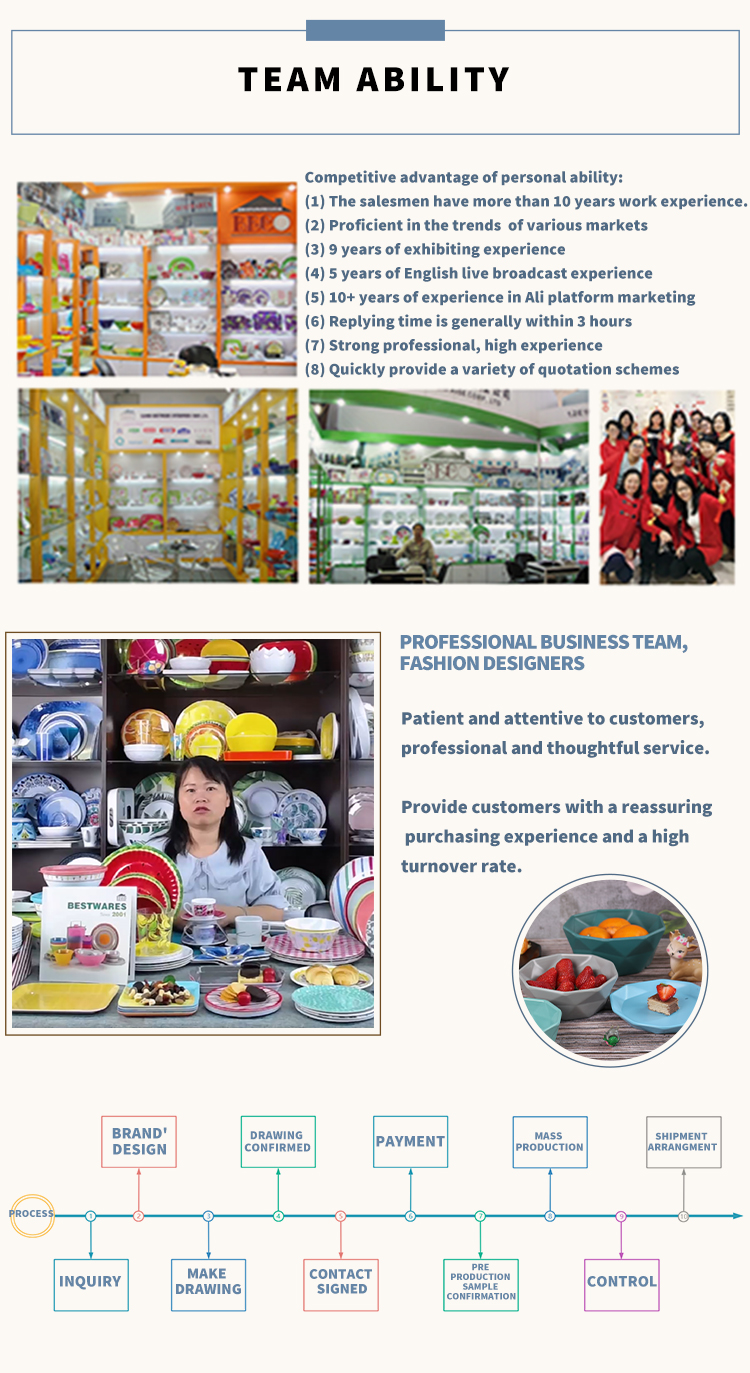In the highly competitive landscape of global trade, ensuring the timely delivery of products is critical for maintaining strong relationships and achieving customer satisfaction. For B2B buyers, managing the global supply chain of melamine dinnerware presents unique challenges and opportunities. Effective supply chain management can significantly impact the timely delivery of these products. Here are the key factors to consider:
1. Supplier Reliability
Reliability of suppliers is fundamental. B2B buyers must establish partnerships with suppliers who have a proven track record of meeting deadlines and maintaining high-quality standards. Conducting thorough supplier evaluations and maintaining ongoing performance assessments are essential practices. Leveraging technology to monitor supplier performance metrics can help in making informed decisions.
2. Inventory Management
Effective inventory management is crucial to avoid delays. Implementing advanced inventory systems that use real-time data can help in maintaining optimal stock levels and forecasting demand accurately. This ensures that products are readily available when needed, reducing lead times and preventing stockouts or overstock situations.
3. Efficient Logistics and Transportation
Choosing the right logistics and transportation partners is vital. Factors such as shipping routes, transit times, and the reliability of carriers play a significant role in the timely delivery of melamine dinnerware. Utilizing logistics management software can streamline operations, optimize routes, and provide real-time tracking, thereby enhancing the efficiency of the entire delivery process.
4. Regulatory Compliance
Navigating the complex web of international regulations is a critical aspect of global supply chain management. Ensuring compliance with customs regulations, import/export laws, and safety standards can prevent delays at borders. B2B buyers must stay informed about regulatory changes and work closely with customs brokers to facilitate smooth clearance processes.
5. Risk Management
Global supply chains are susceptible to various risks, including natural disasters, geopolitical tensions, and economic fluctuations. Implementing a robust risk management strategy is essential. This includes diversifying the supplier base, developing contingency plans, and investing in insurance coverage to mitigate potential disruptions.
6. Technology Integration
Leveraging technology to enhance visibility and communication across the supply chain is a game-changer. Advanced technologies such as blockchain, IoT, and AI can provide real-time data, improve transparency, and foster collaboration among stakeholders. Implementing these technologies helps in anticipating issues, making proactive decisions, and ensuring the seamless flow of goods.
7. Sustainability Practices
Sustainability is increasingly becoming a critical factor in supply chain management. Adopting eco-friendly practices not only meets regulatory requirements but also appeals to environmentally conscious consumers. This includes optimizing packaging, reducing carbon footprints, and sourcing materials responsibly. Sustainable practices can enhance brand reputation and ensure long-term viability.
Conclusion
Timely delivery of melamine dinnerware in the global market hinges on meticulous supply chain management. B2B buyers must focus on supplier reliability, effective inventory management, efficient logistics, regulatory compliance, risk management, technology integration, and sustainability. By addressing these key factors, businesses can navigate the complexities of the global supply chain and ensure that their melamine dinnerware products reach their destinations on time, every time.
Implementing these strategies will not only enhance operational efficiency but also build stronger, more resilient supply chains capable of meeting the demands of the modern market.



About Us


Post time: Jun-28-2024